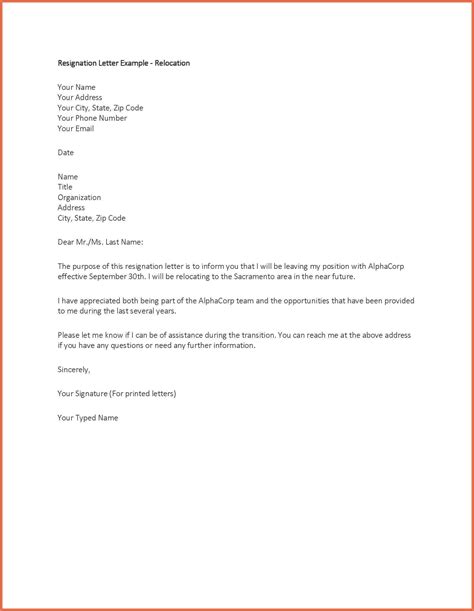Crafting Short Notice Resignation Letters: Examples In English

Resigning from a job can be a difficult and emotional process, but sometimes circumstances require you to resign on short notice. Crafting a resignation letter in such a situation can be challenging, but it is important to maintain a professional and respectful tone. In this article, we’ll provide you with examples and tips on how to craft a short notice resignation letter in English.
1. Understand the Importance of a Resignation Letter
A resignation letter is a formal document that serves as a record of your intent to leave a job. It is important to provide a resignation letter to your employer as it shows that you are leaving your job on good terms and allows for a smooth transition for both you and your employer. It is also a professional courtesy to provide a resignation letter.
2. Keep It Simple and Professional
Your resignation letter should be simple, concise, and professional. Keep the tone respectful and avoid any negative comments about your employer or colleagues. State your intention to resign, the last day of work, and provide gratitude for the opportunity to work with the company.
3. Provide Adequate Notice
While short notice resignations are sometimes unavoidable, it is important to provide as much notice as possible. The standard notice period is two weeks, but if you are unable to provide that much notice, be sure to explain the circumstances and provide a reasonable alternative.
4. Explain the Reason for Your Resignation
While you do not need to provide a detailed explanation for your resignation, it is important to provide a brief explanation. This can be as simple as a career change or personal reasons. Be honest but avoid being negative or critical.
5. Offer to Help with the Transition
If possible, offer to help with the transition process. This can include training a replacement or completing any outstanding tasks before your last day. This shows your willingness to help and ensures a smooth transition for your employer.
6. Proofread Your Letter
Before submitting your resignation letter, be sure to proofread it carefully. Check for any grammar or spelling errors and ensure that the tone is professional and respectful. Ask a friend or colleague to review it as well.
7. Use a Template
If you are unsure how to structure your resignation letter, there are many templates available online. These templates can provide a good starting point and ensure that you include all necessary information.
8. Follow Up
After submitting your resignation letter, be sure to follow up with your employer. This can include discussing the transition process or answering any questions they may have. This shows your commitment to ensuring a smooth transition and maintaining a positive relationship with your employer.
9. Seek Legal Advice
If you have any concerns about your resignation or the terms of your employment, it is important to seek legal advice. This can ensure that your rights are protected and that you are following all necessary legal procedures.
10. Conclusion
Crafting a short notice resignation letter can be challenging, but it is important to maintain a professional and respectful tone. By following the tips and examples provided in this article, you can ensure that your resignation letter is well-crafted and effective.
FAQs
What should I include in my resignation letter?
Your resignation letter should include your intention to resign, the last day of work, a brief explanation for your resignation, and gratitude for the opportunity to work with the company.
How much notice should I provide?
The standard notice period is two weeks, but if you are unable to provide that much notice, be sure to explain the circumstances and provide a reasonable alternative.
Should I offer to help with the transition process?
If possible, it is a good idea to offer to help with the transition process. This shows your willingness to help and ensures a smooth transition for your employer.
What if I have concerns about my resignation or the terms of my employment?
If you have any concerns, it is important to seek legal advice. This can ensure that your rights are protected and that you are following all necessary legal procedures.
